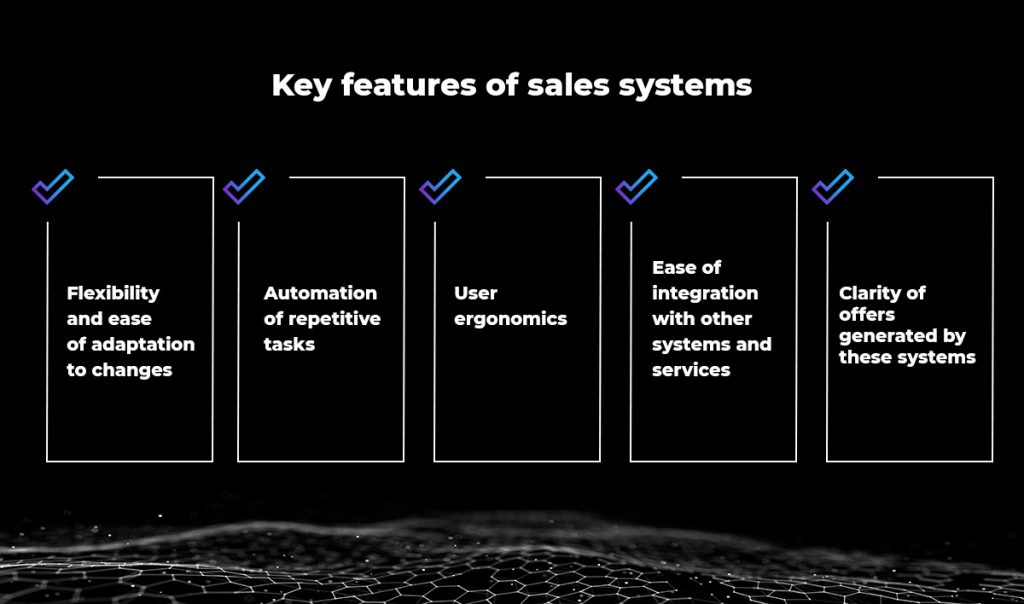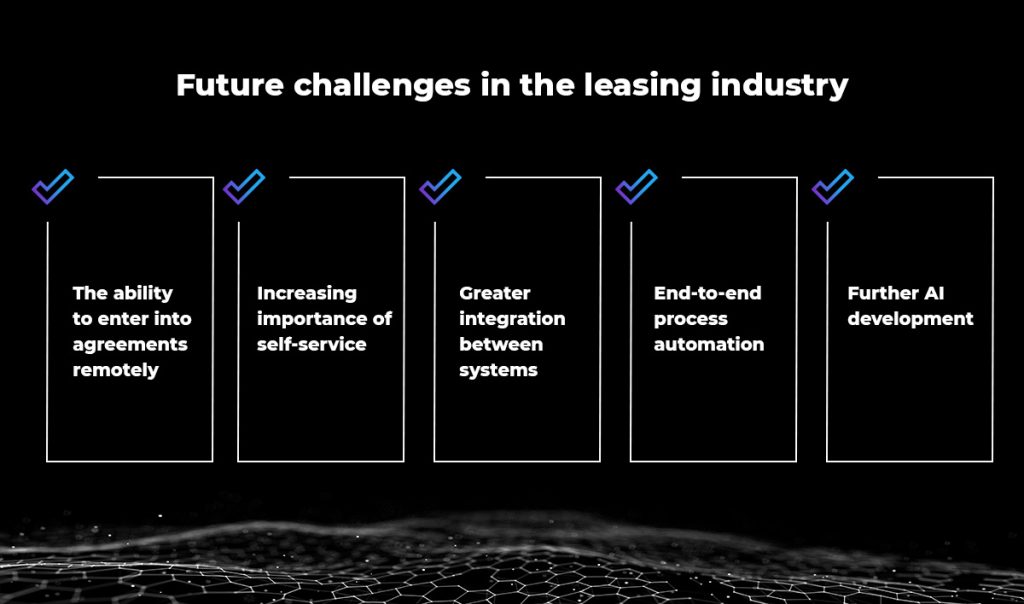For years, the leasing industry has been one of the fastest-growing sectors of the economy. The uniqueness and specific nature of this industry make finding the ideal sales system for financial advisors a real challenge.
Insights from the leasing market
During the workshops for financial companies, organized in collaboration with the Polish Leasing Association (ZPL) in June this year, which I had the pleasure of co-leading, we analyzed the features of sales systems. We considered what makes IT systems effectively support the work of financial advisors.
Workshop participants concluded that sales management portals should offer:
- high flexibility and agility in implementing changes,
- availability of mechanisms that automate part of the users’ activities,
- user ergonomics,
- quick integration with other systems and services.
Additionally, offers generated from such portals should be:
- multi-variant,
- presented in a simple and highly transparent way to make comparing alternatives easier.

Interestingly, participants saw technology as important, but secondary to the system’s fit with business criteria and the availability of configuration options and sales support tools. Technological requirements turn out to be less critical, both in terms of the tool’s working environment and the components used. However, there is a need for system integration, which imposes some minimum technological standards. The current state of overall standardization and technological maturity means that the greater challenges are functional and business rather than technical.
Key features of sales management portals
These conclusions align with the observations of the surrounding reality. The complexity and dynamics of modern business require companies to operate at an increasingly faster pace, leading to a natural need for maximum automation of routine and repetitive tasks.
In a world where adaptability and agility are essential, leasing companies can’t risk slowly introducing new business ideas into their offerings. That’s why the ability to rapidly adapt the sales system is vital – preferably by reconfiguring either the entire sales management portal or its individual parts.
As a key tool for advisors interacting with clients, a sales management portal must quickly adapt to new conditions. Less advanced solutions may be deployed more swiftly, but their effectiveness and maturity are only proven in a dynamic business environment. Therefore, it is worth opting for stable and functional IT systems that offer extensive configuration options to meet all advisors’ needs.
The same applies to integration with other systems. In today’s business environment, it’s impossible to fully process an offer and a financing application without integration and data verification from several different sources or systems. The support of a team of experts behind a mature solution and the open architecture of the sales system allows it to cooperate with other software within the company’s infrastructure. Therefore, to ensure the successful and smooth integration of the sales management portal with other services, it’s essential to verify both the characteristics of the solution and the competencies and references of its provider.
The role of UX in designing sales management portals
Regarding the ergonomics of the sales system and the expectations for simplicity and versatility of the prepared offers, it’s important to consider the perspective of the modern consumer, who is also a user of many IT solutions.
The software provided should offer functionalities in a clear form, without unnecessary elements. Modern, user experience (UX)-focused solutions bring a broad set of easily analyzable and comparable features, meeting the needs of sales system users and customers reviewing generated offers. To effectively combine business functionality with good UX, it’s vital to collaborate with a reliable partner who has the knowledge and experience in creating such solutions. This aspect is crucial when designing new business processes or expanding existing ones.
Future challenges facing the leasing industry
What challenges might arise in the near future regarding systems used in the leasing industry, especially those supporting sales processes?
Several key issues to consider include:
- Omnipresent mobility and the ability to conduct transactions remotely,
- Increased importance of self-service and a growing share of tasks, or even entire stages of processes, that the client will handle independently,
- Greater integration between systems,
- More widespread automation of processes,
- More frequent application of artificial intelligence mechanisms.

Better utilization of mobility advantages, including the capability to complete transactions and contracts remotely, presents significant growth potential for sales processes, especially in the leasing industry. Combining this with the possibility for clients and end-users to self-manage parts of the process creates immense opportunities for modern IT systems to support and integrate the activities of all participants. Mobility and self-service capabilities, along with existing flexibility and functionality, will set the direction for the development of sales management portals.
Deepening integration between various IT systems will become essential to meet increasingly complex processes and the growing demand for automation. In this context, there is a rising need for IT systems to collect and process ever-larger amounts of data.
Artificial intelligence complements all aspects related to the informatization of business processes. AI-based algorithms and mechanisms are becoming increasingly common and will play a more significant role in leasing. AI is deliberately mentioned at the end of this overview to emphasize that such tools are advancing various types of software, including sales systems, across all their domains. In leasing, artificial intelligence is inevitable – it’s becoming a key element essential for the development and optimization of processes.
Leasing and Technology – Summary
Artificial intelligence holds significant potential for automating repetitive tasks and greatly enhancing the work of advisors. Remote contract signing and self-service by clients are key directions the sector should take to meet growing market demands. Increasing integration between IT solutions is also inevitable for optimizing operations, reducing processing time, and minimizing workload. Investing in digital services is crucial, as future success will favor companies that embrace innovative technologies and modern communication tools with clients.

 Polski
Polski
 Deutsch
Deutsch






